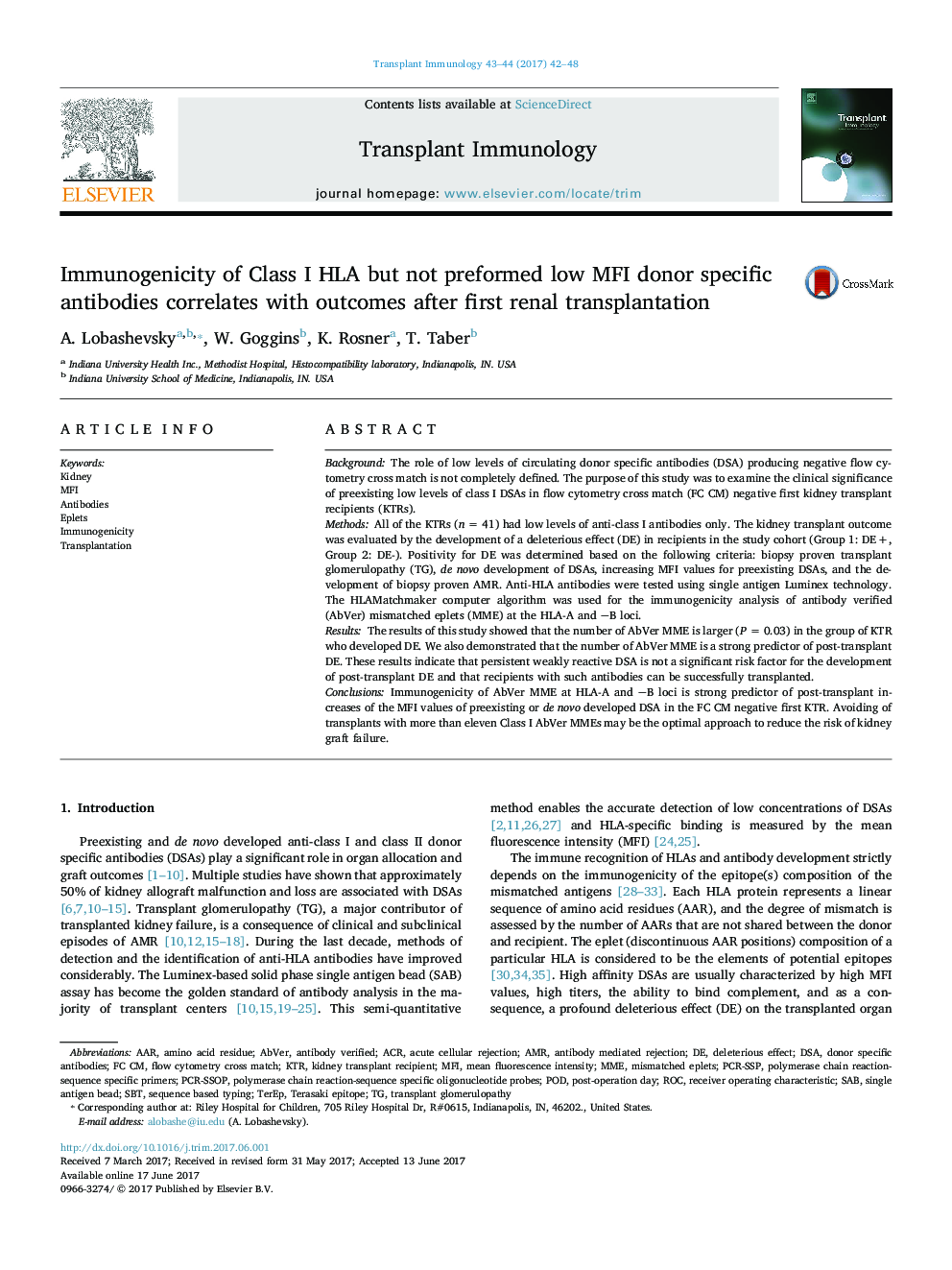| Article ID | Journal | Published Year | Pages | File Type |
|---|---|---|---|---|
| 5670439 | Transplant Immunology | 2017 | 7 Pages |
BackgroundThe role of low levels of circulating donor specific antibodies (DSA) producing negative flow cytometry cross match is not completely defined. The purpose of this study was to examine the clinical significance of preexisting low levels of class I DSAs in flow cytometry cross match (FC CM) negative first kidney transplant recipients (KTRs).MethodsAll of the KTRs (n = 41) had low levels of anti-class I antibodies only. The kidney transplant outcome was evaluated by the development of a deleterious effect (DE) in recipients in the study cohort (Group 1: DE +, Group 2: DE-). Positivity for DE was determined based on the following criteria: biopsy proven transplant glomerulopathy (TG), de novo development of DSAs, increasing MFI values for preexisting DSAs, and the development of biopsy proven AMR. Anti-HLA antibodies were tested using single antigen Luminex technology. The HLAMatchmaker computer algorithm was used for the immunogenicity analysis of antibody verified (AbVer) mismatched eplets (MME) at the HLA-A and B loci.ResultsThe results of this study showed that the number of AbVer MME is larger (P = 0.03) in the group of KTR who developed DE. We also demonstrated that the number of AbVer MME is a strong predictor of post-transplant DE. These results indicate that persistent weakly reactive DSA is not a significant risk factor for the development of post-transplant DE and that recipients with such antibodies can be successfully transplanted.ConclusionsImmunogenicity of AbVer MME at HLA-A and B loci is strong predictor of post-transplant increases of the MFI values of preexisting or de novo developed DSA in the FC CM negative first KTR. Avoiding of transplants with more than eleven Class I AbVer MMEs may be the optimal approach to reduce the risk of kidney graft failure.
